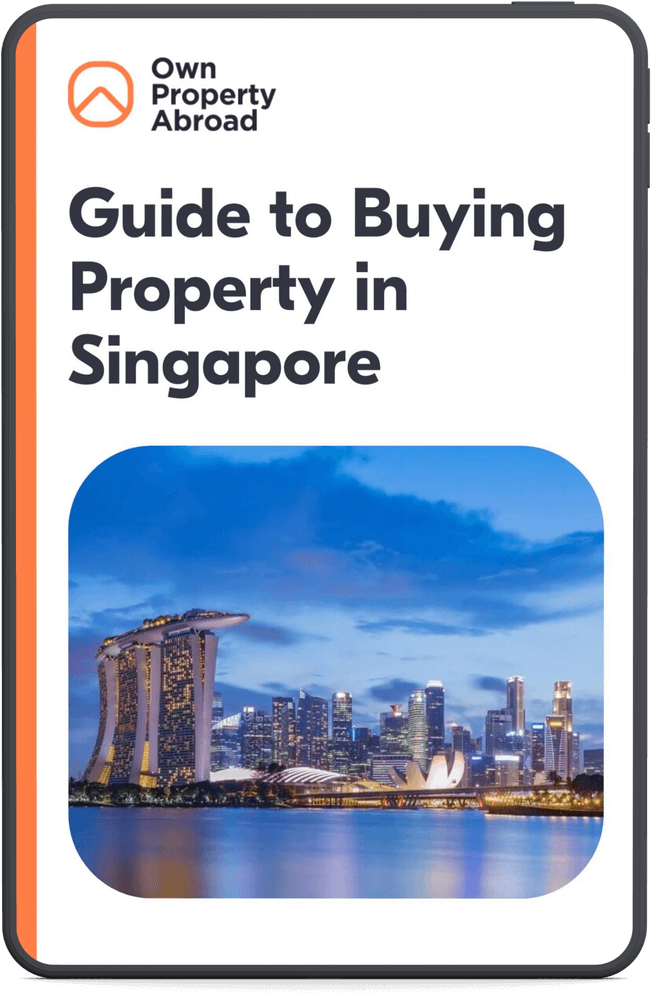Understanding tax residency in Singapore
Understanding tax residency is essential for individuals and businesses in Singapore. It can unlock various financial opportunities and responsibilities.
What is tax residency in Singapore?
Tax residency in Singapore refers to an individual’s or a company’s status that determines their responsibility for taxation. It’s critical to know since it influences one’s tax obligations and benefits.
Who is considered a Singapore tax resident?
Below is an overview of Singapore’s tax residency criteria for individuals and businesses.
For individuals
According to the Singapore Income Tax Act 1947, a person is a Singapore tax resident if they meet any of the following criteria:
- Physical presence: A person physically present in Singapore for at least 183 days a year is considered a tax resident. This is called the ‘183-day rule’.
- Employment: A person who works in Singapore for at least 183 days a year.
- Economic interest: When a person is not physically present for 183 days or more per year but can demonstrate that economic interests are linked to Singapore. For example, by having a job or business in Singapore.
- Permanent resident: When a person is a Singapore Permanent Resident, they are considered a tax resident of Singapore.
For businesses
For companies, tax residency in Singapore is determined by where the business is controlled and managed. The residency status of a company may change from year to year. A company is a tax resident when the control and management of the business is exercised in Singapore. This is checked for the preceding year, so if a company is a Singapore tax resident for the year 2023, the control and management of the business were exercised in Singapore in 2022.

Tax residents vs. non-tax-residents in Singapore
Below is an overview explaining the differences between tax residents and non-tax-residents in Singapore.
| Factors | Tax residents Singapore | Non-tax-residents Singapore |
|---|---|---|
| Residency criteria | – A person is physically present in Singapore for 183 or more days per calendar year. – A person is physically present in Singapore for less than 183 days but can demonstrate that their economic interests are linked to Singapore. | A person who does not meet the tax criteria is considered a non-tax-resident. |
| Taxable income | Tax residents in Singapore are required to pay tax on their worldwide income. Both income earned within Singapore and foreign countries. | Non-tax-residents are generally only taxed for income earned within Singapore. |
| Tax filing | Tax residents must file income tax returns with the Inland Revenue Authority of Singapore (IRAS) annually, typically by April 15th of the following year. | Non-residents are usually only required to file income tax returns with Singaporean-sourced income. |
How to become a tax resident in Singapore
When wanting to become a tax resident in Singapore, you must meet specific criteria established by the Inland Revenue Authority of Singapore (IRAS). Follow one of the following criteria to become a tax resident in Singapore:
- Physical presence: The most common way to become a tax resident is by meeting the ‘183 rule’; as discussed at the beginning of this article, the rule states that a person needs to be physically present in Singapore for at least 183 days per calendar year. These days don’t have to be in a row, but the day must add up to at least 183 days.
- Economic ties: When a person does not meet the 183 rule, they can still become a tax resident if they demonstrate that their financial interests are closely linked to Singapore. This can include having employment or business activities in Singapore, maintaining a permanent home in Singapore, or having family ties.
- Permanent Residency (PR): When a person holds a Permanent Residency in Singapore, they are automatically considered a tax resident in Singapore.
- Not Ordinarily Resident (NOR) scheme: Singapore offers the NOR scheme, which provides tax benefits to specific foreign individuals working in Singapore. To qualify for NOR status, particular criteria related to employment income, qualifications, and duration of stay in Singapore must be met.
Valuable insights and practical advice, distilled from years of expertise and real-world experience.


What to consider before becoming a tax resident in Singapore?
It is essential to consider various factors and plan suitably before becoming a Singapore tax resident. Below are some key considerations:
- Criteria: Understand Singapore’s tax residency requirements, such as the ‘183 rule’ and economic ties. Make sure you meet or plan to meet the needs.
- Tax implications: Do research on Singapore’s tax system. Calculate the potential tax liability based on your income so you won’t come for surprises.
- Business opportunities: If you plan to work or run your business in Singapore, it is wise to research the job market and Singapore’s business environment.
- Cost of living: Singapore has high living costs in general, including housing, education, and healthcare, so evaluate if you can afford these expenses before you move there.
- Permanent residency: Guarantee you understand the requirements and application process to become a permanent resident in Singapore.
- Visa requirements: Ensure you have the necessary visas to live and work legally in Singapore.
Before deciding to become a tax resident, consult with professionals who specialize in Singapore’s regulations like Own Property Abroad.
Benefits of tax residency in Singapore
Being a tax resident in Singapore offers different benefits, which makes it attractive for individuals and businesses. Below are some advantages of being a tax resident in Singapore.
- Competitive tax rates: Singapore has competitive tax rates. Personal income tax rates are progressive. The rates range from 0% to a maximum of 22% for individuals. Corporate tax rates are set at 17%. Besides, there are several tax incentives and exemptions for businesses.
- Tax reliefs: Tax residents in Singapore are qualified for different tax reliefs that can significantly reduce their overall tax liability.
- No Capital Gains Tax: There is no Capital Gains Tax in Singapore. This makes it an attractive location for investors.
- Double Taxation Agreements (DTAs): Singapore has a network of DTAs with more than 80 countries. These agreements help prevent double taxation.
- Territorial taxation: Singapore follows a territorial tax system, meaning that all income earned outside Singapore usually is not subjected to Singaporean taxation.
- Business-friendly: Singapore offers a business-friendly environment, making it an excellent location for investors to establish companies.
Conclusion
Tax residency in Singapore is not just a matter of legal status. It is also a gateway to financial opportunities and obligations, from competitive tax rates to other incentives. Singapore offers a transparent and business-friendly environment. However, deciding to become a tax resident is a crucial choice; be careful when considering and consider eligibility criteria and long-term goals. Consulting with professionals and legal experts is highly recommended to ensure compliance with Singapore’s tax laws and maximize the benefits offered.
Get help from professionals
Own Property Abroad can assist you with tax residency in Singapore. Thanks to our extensive knowledge of Singaporean taxes, we can help you obtain your tax residency in Singapore. For further information on how we can assist you, kindly drop your details below or email us at [email protected].
Valuable insights and practical advice, distilled from years of expertise and real-world experience.


Frequently Asked Questions (FAQs)
What is tax residency in Singapore?
Tax residency in Singapore refers to when a person or a company has to pay taxes in the country. This is determined by factors such as physical presence, economic interests, or permanent residency.
What is a tax residency certificate in Singapore?
A Certificate of Residence is a letter that you are a tax resident in Singapore. This has the purpose that individuals can claim tax benefits.
How to get a tax residency certificate in Singapore?
To get a Certificate of Residence (COR), you must apply on the website of the Inland Revenue Authority of Singapore.
What is the 183 rule?
The 183 rule refers to the rule in Singapore that a person must at least be physically present for 183 days per calendar year to be considered a Singapore tax resident.



